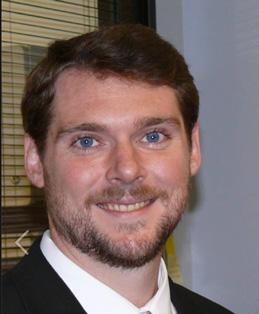
3 minute read
THE UNIVERSITY OF TEXAS RIO GRANDE VALLEY AIMS TO HAVE A WELL MAINTAINED CAMPUS COMMUNITY FOREST.
The benefits the forest will provide are myriad. Large trees give us a sense of place and belonging by ensuring landmarks for the future, and add aesthetic beauty to the campus by softening the linearity of its structures. Around campus, trees in parking lots and by sidewalks provide relief from the hot Texas sun, while adequate canopy cover on campus provides shade and pollutionremoval capabilities (with abundant leaf surface area on which to deposit, pollutants and particulates are filtered from the air). Clean air, low temperatures, and comfortable areas make recreational opportunities such as socialization and/or improving health possible and enjoyable.
Nearby streets and buildings enjoy reduced energy costs due to the shade provided by the tree forests, and increased property value and business traffic due to their beauty. Trees also serve as strategic barriers to reduce noise, glare, and odors at key places around town.
Advertisement
In addition to making our lives more comfortable, trees are vital for the environment. Trees provide abundant canopy cover which helps reduce stormwater runoff and soil erosion. It also provides adequate cover, and nutrients to sustain a diverse wildlife population as well as maintains a structured feel on the campus grounds, both important goals for UTRGV. No one species comprises more than ten percent of the population, and trees planted are native /adaptive species appropriate for the region.
Well-maintained trees reduce hazards, and low-maintenance trees reduce operating costs. Trees selected for planting on UTRGV campuses are wind resistant, strong-wooded, have aesthetically pleasing autumn colors, and provide beautiful seasonal flowers. The trees that make up the forest are a good mixture of small, medium, and large trees optimized for the available space. The University of Texas Rio Grande Valley maintains adequate tree canopy cover by planting trees, assisting with developing tree ordinances and tree-related policies. Student, staff, and faculty, along with city foresters, help reduce labor costs, while volunteering to inventory, plant, and maintain trees. The Office for Sustainability also provides training and development workshops to further educational efforts related to urban forestry.
UTRGV understands the importance of having healthy trees in the city and on the campus. The university contributes to sustainability goals by providing periodic tree maintenance training to its staff, providing necessary funding to ensure the sustainability of the community forest, contracting arboricultural services to ISA certified arborists with appropriate experience, and encouraging cooperation and coordination among municipal departments where trees are involved.
Campus Tree Advisory Committee
The Campus Tree Advisory Committee is comprised of UTRGV faculty, staff, a student, and both local and state foresters. The committee was established October 21, 2013 and meets biannually to provide important input for tree care and campus landscape improvement. The committe is tasked with providing guidance for future planning, approval of a campus master tree plan, educating the campus and community on the value of trees, providing recommendations concerning tree removal and planting, and establishing goals for increasing the number of trees on campus.
Committee Members
Ment
Racelis is a professor in the School of Multidisciplinary Sciences at UTRGV where he continues a research and student training program in urban and agroecology with the ultimate goals of integrating findings into local food and urban policies and arming local students with techniques and skills in ecological research to best make positive impacts on their own communities
Gabler, assistant professor, joined the School of Earth, Environmental, and Marine Sciences at UTRGV in 2016 and holds a joint appointment in the Department of Biology. He earned his Ph.D. in Ecology and Evolutionary Biology from Rice University in 2012. He worked as a postdoctoral researcher at the University of Houston and with the U.S. Geological Survey before moving to Brownsville to start his Plant Ecology and Sustainability Laboratory.
Dr. Bradley Christoffersen is a broadly trained ecologist, with extensive experience in tropical forests and soon the thornscrub ecosystems of the Rio Grande Valley. His research focuses on plant physiological ecology, ecosystem ecology, and models which scale up processes from plant tissues to whole ecosystems.

Abraham Hernandez
Abraham Hernandez is the Executive Director for Campus Facilities Operations. He has over 31 years of higher education experience, of which 28 have been with the UT system. He oversees all UTRGV campus locations and his responsibilities include, general oversight of building, grounds and custodial maintenance, as well as general services and warehouse operations. Hernandez earned a Bachelor of Applied Technology with a specialization in Workforce Leadership and Supervision from the University of Texas at Brownsville. He holds the credential of (CEPF) Certified Educational Facilities Professional from APPA meaning he is certified as a Public Manager, and has been an Electrical Apprenticeship instructor for over 35 years.









